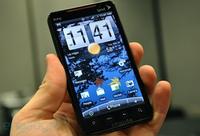-
Lockheed Martin UK opens its U.K. cybersecurity center

Lockheed Martin UK has officially opened its first Security Intelligence Center (SIC) at Farnborough; the role of the SIC will be detection, identification, and response to information security incidents; this is accomplished by bringing together three primary capabilities: pervasive sensors, data management, and analyst collaboration
-
-
Both hackers and security vendors are embracing the cloud
Large-volume hackers are now using the cloud for lucrative large-scale attacks, using public infrastructure to put at risk companies which adopt ambitious but poorly considered cloud-computing strategies. Even as they move to the cloud, too many companies simply move their security and reliability problems from the current infrastructure to the new one.
-
-
Congressional approval of cybersecurity bill looks promising

Amid the partisan acrimony of the budget battles on Capitol Hill, the Obama administration and the Senate have made promising efforts to pass a sweeping cybersecurity bill in a rare show of bipartisan agreement; the bill is now at the top of the Senate’s agenda, and Senator Harry Reid (D – Nevada), the majority leader, said he plans to bring the bill to the floor during the first working session of 2012
-
-
Some smartphones are more vulnerable to attack

New research shows that some smartphones specifically designed to support the Android mobile platform have incorporated additional features that can be used by hackers to bypass Android’s security features, making these phones more vulnerable to attack
-
-
U.K. unveils new cyber defense strategy
The U.K. government last week published its new Cyber Security Strategy; the government said the new strategy sets out “how the United Kingdom will support economic prosperity, protect national security, and safeguard the public’s way of life”
-
-
Anonymous retaliates against cyber investigators

The international hacktivist group known as Anonymous recently released two large torrents of stolen government data including details on forensic methodologies and information regarding current and former law enforcement agency employees; the latest attacks come in retaliation to harsh sentences given to members of its group
-
-
U.K. banks pass cyberdefense stress test
To bolster cyberdefenses in the financial industry, U.K. banks recently took part in a stress test to determine their ability to cope with a cyberattack; eighty-seven banks took participated in the drill including Barclays, HSBC, and Royal Bank of Scotland
-
-
Hackers fail in AT&T cyberattack

Last week AT&T announced that it had successfully fended off an attack by hackers; the company said it is still unclear what the hackers’ intentions were, but no accounts were breached
-
-
The 25 worst passwords of 2011
SplashData, a password management application provider, has released its annual list of the worst Internet passwords. The list was prepared from files containing millions of stolen passwords posted online by hackers. The worst password of 2011: “password.”
-
-
Nations could cripple U.S. with retaliatory cyberattack
Last week Richard Clarke, a top adviser to three presidents, sounded a dire warning that the United States should avoid going to war with other nations because its computer networks systems are so vulnerable to attack
-
-
Detecting insider threat from massive data sets
Researchers in a 2-year, $9 million project will create a suite of algorithms that can detect multiple types of insider threats by analyzing massive amounts of data — including email, text messages and file transfers — for unusual activity
-
-
Fewer but costlier cases of identity theft in U.S.
Identity fraud in the United States fell 28 percent in 2010 to 8.1 million from an estimated 11 million in 2009, according to Javelin Strategy &Research. The problem: thieves are becoming more creative in their methods of obtaining personal information, and those who suffer from identity theft are facing higher consequences, with the average out-of-pocket costs nearly doubling in the same time period to $631from $387 per incident.
-
-
Chemical industry hit by “Nitro” cyberattacks
In a string of cyberattacks, hackers have stolen critical formulas and plans from major chemical companies; the latest attacks, dubbed “Nitro,” were uncovered by Symanetec, which reported the hackers aims were corporate espionage rather than a terrorist attempt to procure chemicals
-
-
Americans anxious about identity theft
Americans will go to great lengths to avoid identity theft, and many say they would take legal action against government or private organizations that compromise their personal data; more than half of surveyed Americans are willing to provide biometric data to secure their identities
-
-
CSAW winners to be announced Friday

Cyber security is capturing the attention of a growing number of high school students, judging by the record participation in Polytechnic Institute of New York University’s annual Cyber Security Awareness Week (CSAW) challenges; the competition will culminate this Friday, 11 November, with thirteen finalists vying for scholarships and cash prizes for their schools’ science programs
-
- All
- Regional
- Water
- Biometrics
- Borders/Immig
- Business
- Cybersecurity
- Detection
- Disasters
- Government
- Infrastructure
- International
- Public health
- Public Safety
- Communication interoperabillity
- Emergency services
- Emergency medical services
- Fire
- First response
- IEDs
- Law Enforcement
- Law Enforcement Technology
- Military technology
- Nonlethal weapons
- Nuclear weapons
- Personal protection equipment
- Police
- Notification /alert systems
- Situational awareness
- Weapons systems
- Sci-Tech
- Sector Reports
- Surveillance
- Transportation
Advertising & Marketing: advertise@newswirepubs.com
Editorial: editor@newswirepubs.com
General: info@newswirepubs.com
2010-2011 © News Wire Publications, LLC News Wire Publications, LLC
220 Old Country Road | Suite 200 | Mineola | New York | 11501
Permissions and Policies
Editorial: editor@newswirepubs.com
General: info@newswirepubs.com
2010-2011 © News Wire Publications, LLC News Wire Publications, LLC
220 Old Country Road | Suite 200 | Mineola | New York | 11501
Permissions and Policies
